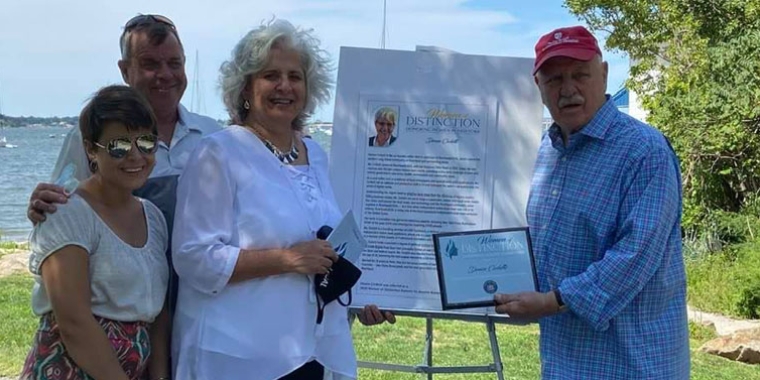SUNY2020 Maintains Affordability of SUNY System, Authorizes Millions in Capital Funding That Will Create Jobs and Grow Economy, Re-Establishes SUNY & CUNY as Economic Engines
Kenneth P. LaValle
August 9, 2011
-
ISSUE:
- Education
- SUNY (State University of New York)
- Higher Education
- CUNY (City University of New York)
- Financial Aid
-
COMMITTEE:
- Higher Education

New York State Senator Kenneth P. LaValle (R, C, I – Port Jefferson), Chairman of the New York State Senate’s Higher Education Committee lauded New York State Governor Andrew Cuomo for his leadership in recognizing that SUNY is an intricate part of New York State’s economic development strategy as landmark SUNY2020 legislation was signed into law today.
Senator LaValle said that New York State Senator and Majority Leader Dean Skelos made SUNY and the state’s students a top priority and he should be commended for partnering with the Governor and “ensuring we had a positive result.” Assembly Speaker Sheldon Silver also played a pivotal role, LaValle said, in shaping the important new law.
“This legislation plays a critical role toward rebuilding the SUNY and CUNY system and re-establish SUNY and CUNY as a critical part of New York State’s economic engine,” Senator LaValle said.
The law also enacts a rational tuition plan that allows each SUNY and CUNY campus to raise tuition in a predictable manner, replacing an era of sudden tuition increases with a system that empowers students and parents to plan for college expenses and allows the state, students and local campuses to make investments in and provide access for students and create jobs in each region of the state.
LaValle said SUNY2020 authorizes $80 million in capital funding for the four University Centers that will be awarded subject to the approval of the NYSUNY 2020 applications. Combined with the additional $60 million in existing SUNY funds, the total Challenge Grant Program investment totals $140 million. Decisions regarding NYSUNY 2020 challenge grant awards will be made in the coming weeks.
“The creation of challenge grants,” Senator LaValle said, “will be helpful to the University centers.”
“As a proud SUNY graduate myself, I welcome Governor Cuomo’s and Senator LaValle’s strong leadership to transform our state public university system. The SUNY 2020 Challenge Grant Program funds that Stony Brook is seeking will expand the University Medical Center’s cancer treatment and research programs and strengthen our local economy here on Long Island. The thousands of additional jobs in the construction, medical and science fields, will be an important part of our region’s future economic growth,” said Senator Lee M. Zeldin (R, C, I- Shirley).
Stony Brook University has said it will use the award, if granted, to help build a $194 million cancer care and research building called the Medical and Research Translation Building (MART) that would expand the medical center’s capacity to care for cancer patients. Construction of the MART, it is estimated, would create more than 4,000 construction jobs.
“These capital projects will at first create construction jobs that get people working and push dollars back into the economy,” LaValle said, “ and once completed will create additional jobs, many in the medical and science fields with the attendant support staffs.”
The law will also maintain affordability for students by establishing tuition credits, which will require SUNY and CUNY to apply a credit against the tuition charged to a student. The amount of the applicable tuition credit will be based on the level of a student's tuition assistance program (TAP) award.
“The Governor’s focus and making SUNY a priority helped drive a final result,” Senator LaValle concluded.
Share this Article or Press Release
Newsroom
Go to Newsroom


